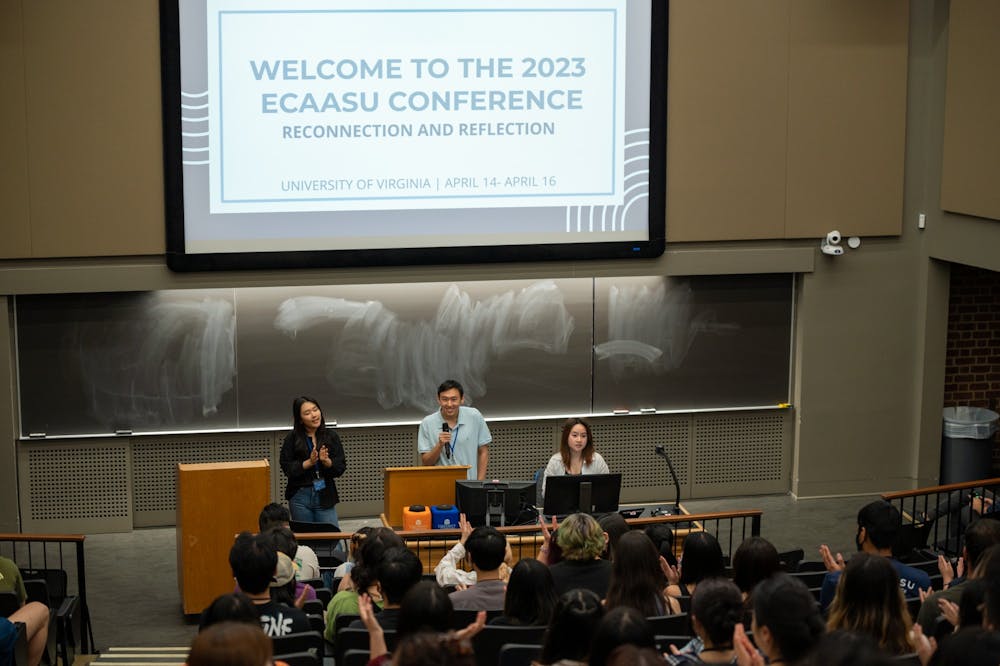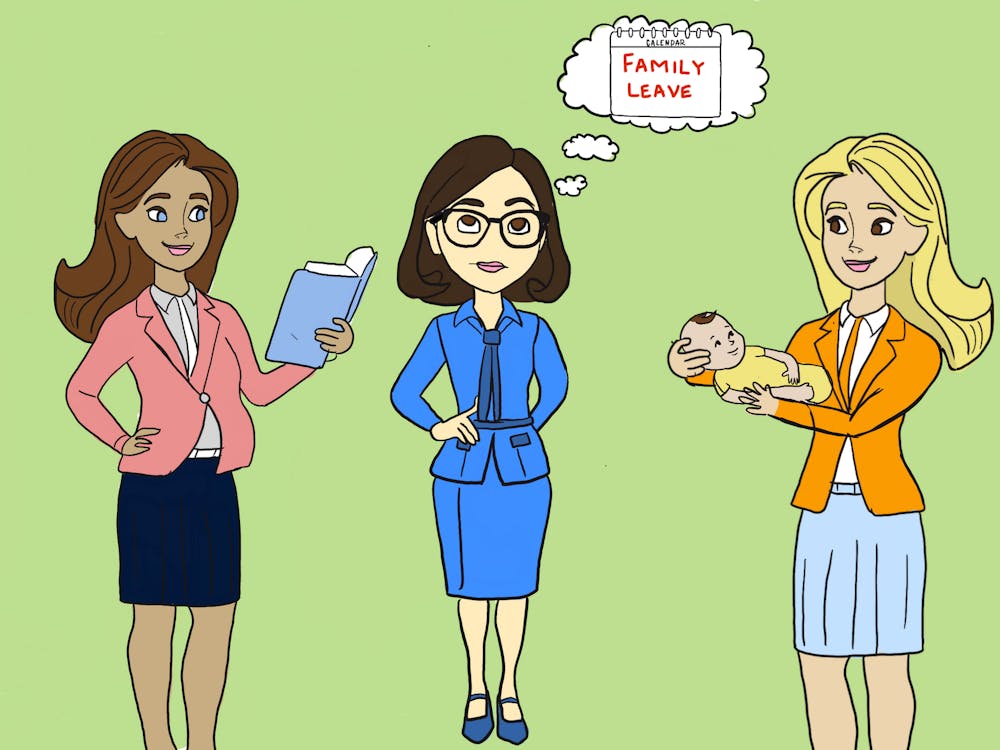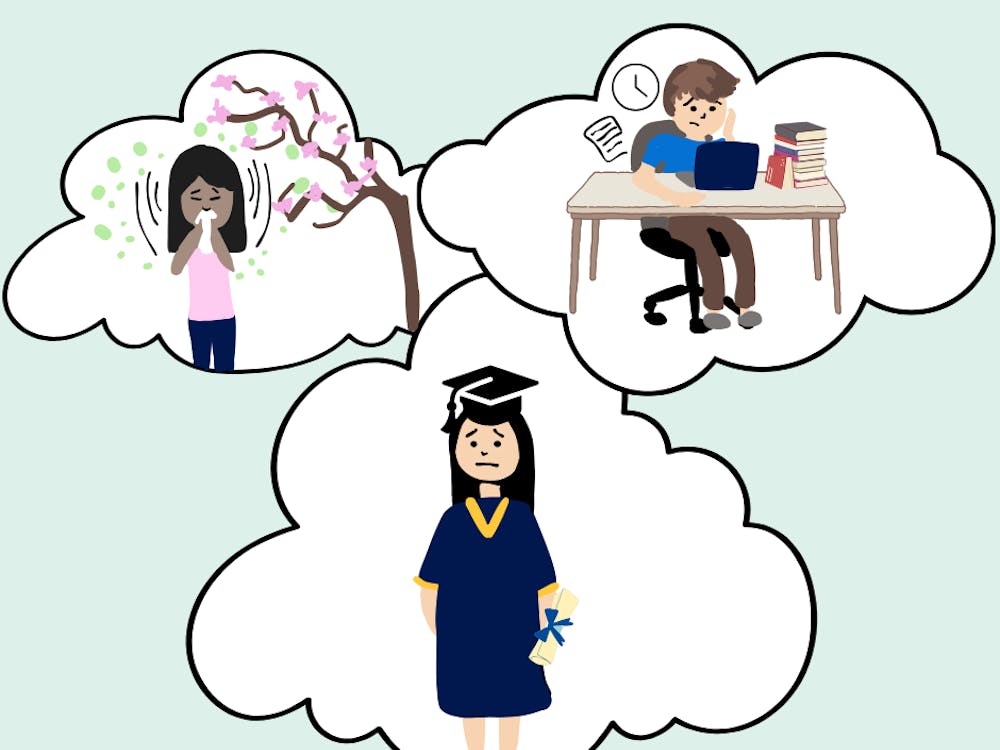The University hosted the first in-person East Coast Asian American Student Union conference since 2020 this past weekend, a culmination of efforts undertaken by members of the Asian Student Union since last summer. Around 250 students from 22 schools across the country came to the conference, representing a mixture of years and backgrounds.
ECAASU is a national student-run non profit that aims to inspire, educate and empower Asian Americans through year-long advocacy work tackling issues facing Asian Americans as well as host an annual student conference — which remains the oldest and largest Asian American student conference in the country. This is the second time the University has hosted the conference, the first time being in 2004 with the theme Awakening.
This year’s theme, Reconnection and Reflection, was chosen following the COVID-19 pandemic and the rise in anti-Asian hate crimes. In the ECAASU Conference program, it describes how the theme sought to encourage both self and historical reflection and a re-establishing of bonds with others, providing the chance for Asian American students to connect in a unique way.
For Maddie Kiernan, a freshman at Simmons University, the conference enabled her to make new connections among other Asian American students in the U.S.
“I’ve never been to an Asian American-centered event, and I came from a predominantly white high school, so it’s a really great opportunity to meet other Asian students from across the country,” Kiernan said.
Gordon Shi, president of the Asian Student Union and third-year College student, and Estelle Kim, vice president of Asian Student Union and fourth-year College student, served as this year’s conference directors. They won the opportunity to host the conference after submitting a bid last summer. Along with the national board and board of directors of ECAASU, the two planned the conference from start to finish. The opening ceremony took place Friday at 5 p.m. in Wilson Hall, beginning with speeches from Shi and Kim welcoming attendees.
“Our country’s forefathers made our rights unalienable, and our country in response made us aliens,” Shi said. “But you all didn’t come here to collectively lament our adversity. You’re here because you have the conviction to overcome it.”
After helping to organize ECAASU’s Virginia campus summit last year, Kim decided to submit a bid to host the national conference at the University. She discussed the challenges of doing advocacy at a predominantly white institution and the perseverance of the conference team amid all of the hurdles and sleepless nights spent planning.
“For the last 10 months, we cemented a culture of trust and solidarity to bring you a conference that I am extremely proud of, and one that we can all enjoy together,” Kim said. “I look forward to forging a community of progress together.”
The conference’s keynote speaker jason chu, an Asian American poet, rapper and activist from Delaware, spoke at length about the history of the term “Asian American,” which was coined in 1968 by graduate students at the University of California, Berkeley.
Chu described the importance of Asian American being a chosen community of communities, rather than one predetermined by others. The umbrella term “Asian American” encompasses all Asian Americans, regardless of background and identity, and Chu said it was the choice of those sitting in the audience whether to build that solidarity and community or to allow themselves to fall.
“Asian America means not putting down your own just so you can get up,” Chu said.
Following the opening ceremony Friday, attendees could watch the sunset and enjoy food trucks and cider donuts at Carter Mountain Orchard, which the ECAASU planning team booked for the night as an opportunity for networking.
Saturday featured a packed schedule of programming, with 22 workshops throughout the day, with breakfast, lunch and dinner catered for the attendees.
Workshop topics spanned a range of themes that included mental health, disorientalism, community healing, intergenerational trauma and coalition building. Many workshops focused on the Asian American experience in general, but there were also workshops focusing specifically on issues faced by Filipinos, Japanese Americans, Khmer and South Asians.
One current University student, second-year College student Amy Tran, and one University alumna, Katie Zhang, led their own workshops, but other workshop facilitators stemmed from colleges across the east coast including Yale University, and the College of William and Mary.
The conference also featured Manjeet Sarkar, a stand-up comedian from India who spoke about the importance of storytelling and began with sharing his own story. He recently launched the first ever national tour done by a Dalit comedian — someone from the lowest caste in India — and only learned English last year as his fifth language.
“Before we decide what the future looks like, we must acknowledge our past,” Sarkar said. “Without any agenda, we must listen to each other and feel human emotion… If we try to forget history, we’ll continue this cycle of sadness, and we’ll feel disconnected from our roots more.”
The closing ceremony took place at Jackson P. Burley Middle School Saturday night from 8:30 to 11:30 p.m. and featured two guest speakers. Minh Phan, chef and founder of the Michelin-star restaurant PHENAKITE — which was named Restaurant of the Year by the Los Angeles Times in 2021 — spoke about her experiences running the restaurant during the pandemic and what it means to be a team leader.
The night concluded with performances from Chu and a variety of University student performance groups — V Major Chinese Arts Performing Troupe, Wushu Club, APEX Dance Crew and Ektaal A Cappella. The groups played traditional Chinese instruments, performed wushu — a form of Chinese martial arts — danced to K-pop and sang South Asian fusion music, respectively.
The performances were then followed by closing remarks from Kim and Shi. Shi talked about the forging of new connections over the weekend as attendees tried to gain a better understanding of their own identity and revisited the question posited by Chu during the open ceremony about whether Asian America will live or die.
“I can say with full faith and confidence that Asian America will live,” Shi said.







